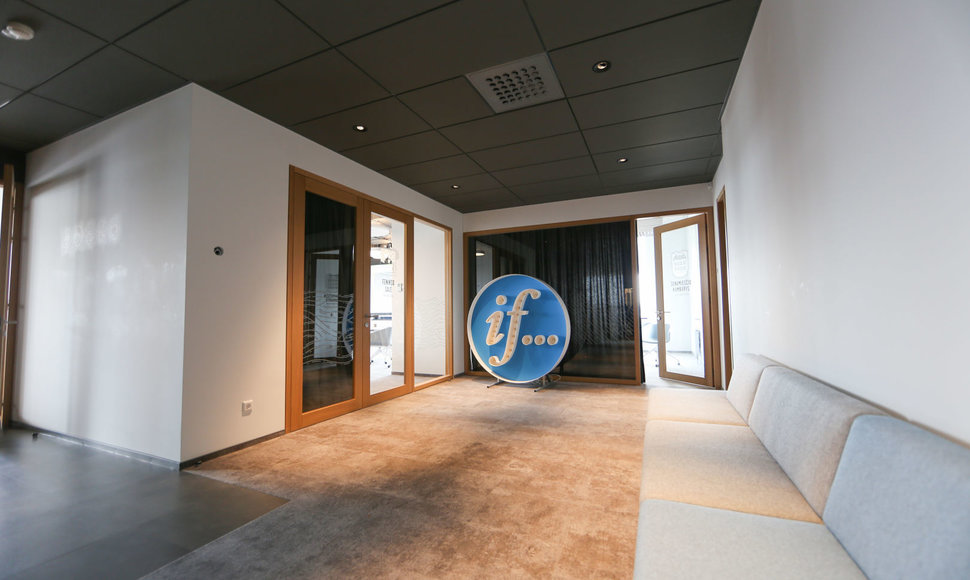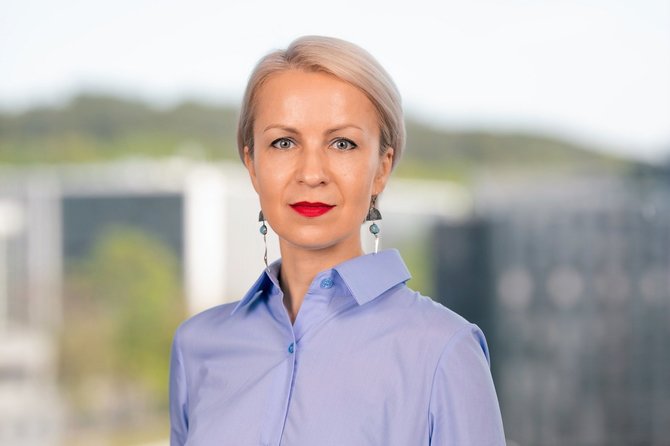According to Jurgita Banytė, the head of the Human Resources Department at If, the changed rhythm of living over the past few months has dramatically changed our society and working practices. Up to now, it seemed that individuals in certain areas of work simply could not work from home, but today we see that the home office is suitable to perform all our functions. “We do not doubt that after the COVID-19 pandemic, the world will no longer be as it was and working from home for a time will be a far more typical scenario in our company than working at the office all five working days,” J. Banytė says.
“We interviewed our almost 900 staff across the Baltic States in order to hear their expectations on work organisation going forward. In Lithuania, 98% of our colleagues filled in the survey – it is clear that this question is truly important to our staff. It turned out that in the short term perspective, only 39% of Lithuanian staff want to return to the office as soon as possible, while 30% wouldn’t plan to return even before summer ends. The remaining colleagues plan to balance working from home and from the office during summer. We also asked our staff what form of work would be acceptable in the long term as well, once the COVID-19 situation has been contained. We see that around two-thirds of our staff plan to one or another extent of balancing working from home and the office. However, only 24% of colleagues would like to spend all their working time at the office. The number of those wishing to work exclusively from home is smaller at around 7%.
Advantages of working from home
The survey asked why people would rather choose to work from home. Almost half of those interested in continuing remote work say that it takes too long to commute to work. A third mentioned that they have to take care of their children, who are not attending kindergarten or school, while 23% of staff say that it is simply more convenient to remain at home and they experience less tension this way. Among other reasons, they named the risk of travelling by public transport, the opportunity to better plan breaks between work, the desire to protect themselves and their close ones, who are in the increased risk groups.
However, working from home also presents its own challenges – a third of staff, who wish to return to the office, list more convenient and more ergonomic working places as a reason. Around a fifth of staff say that the main downside to working from home is that there are too many people there, making it hard to concentrate.
According to the head of the If Human Resources Department, given that all colleagues can also perform their work from home, the first to be offered to return to the office were the colleagues, who themselves indicated in the survey that they would like to, as well as being currently healthy and not belong to the risk groups.
Gradual return
The insurance company If is planning the return to the offices to be done gradually. With lockdown conditions being loosened since mid-May, it has become clear that despite certain inconveniences of working from home, the element of safety remains important and only a small portion (around 15%) of staff are returning to the offices at this stage. From June, a little more, around 20% of staff, are planning to work in the offices.
“With our staff’s safety being our main priority, we have created a system for return to the office. Firstly, we evaluated what maximum number of staff can work in each one of our offices while maintaining safe distance requirements. All our office tables are marked with special stickers, which inform of what workplaces to use to maintain the necessary distance to colleagues. All meetings and conferences are held remotely. Colleagues are advised to avoid using office elevators and other common use premises, also to have lunch at their office kitchenettes, rather than public catering establishments. All the offices are cleaned more frequently and are equipped with disinfectant materials,” J. Banytė explains.
In summarising the situation, the head of the If HR Department says that the lockdown period has displayed how we can truly successfully do our work remotely. Such means of serving clients has for a time now been one of the company’s strategic directions, thus the lockdown and remote work have not greatly derailed the day to day operations of If. Nevertheless, it is also important not to forget the challenges presented by working from home. That is finding new means of communicating with the staff, which would allow keeping a sense of team spirit and for everyone working from home – to maintain self-discipline in organising their workday and maintaining a separation between professional and personal life.













